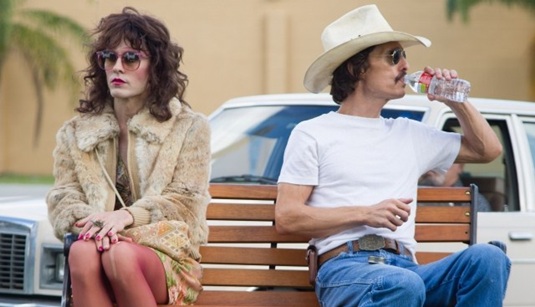Dallas Buyers Club is a political film in that its subject
is the governing and administration of the state. What are the responsibilities
of the hospital institutions to the populace infected with this fatal disease?
What are the pharmaceutical steps to find a medicinal cure?
How do these two groups, the drug administration and the
pharmaceutical companies, organize themselves to find a solution? Who are they accountable
to? Are their methods transparent? How are their results disseminated in the
media?
These are some of the hard questions
that are asked in Dallas Buyers Club
and it does not offer any easy answers. It isn’t didactic on these issues
but it's still succinct and direct in its engagement with them through its images and sounds. Dallas Buyers Club, like all
of Vallée’s films, is about an
individual reacting to a form of oppression. In C.R.A.Z.Y. the oppression is familial, in
The Young Victoria it's patriarchal, in Café de Flore it's marital, and
in Dallas Buyers Club it's medical.
Dallas Buyers Club presents this medical
conflict sometimes in broad gestures, for example Woodroof's confrontation with the FDA is Capraesque. There are also scenes of social protest that are more subtle and
recall The Case of the
Grinning Cat while some other scenes are more critical and recall The
Mad Songs of Fernanda Hussein. But what makes Dallas Buyers Club so unique is how Vallée brings all of these elements together to create an emotional experience that is also a site of resistance, empathy and utopian possibilities.

No comments:
Post a Comment